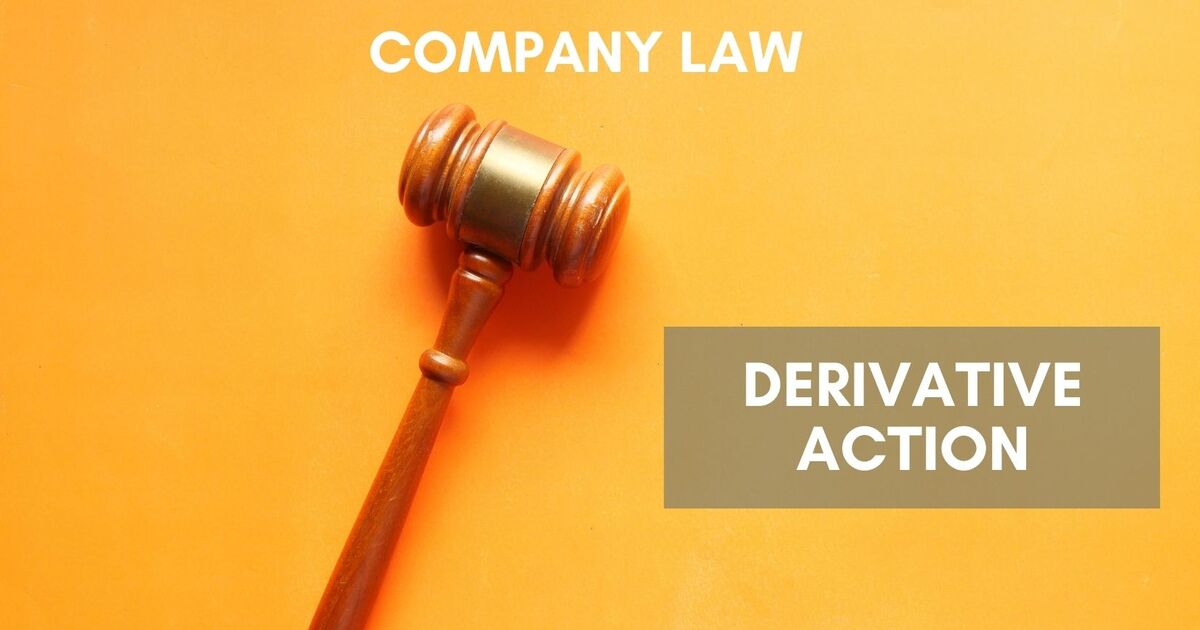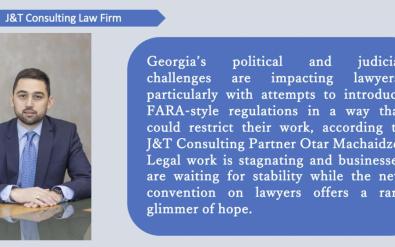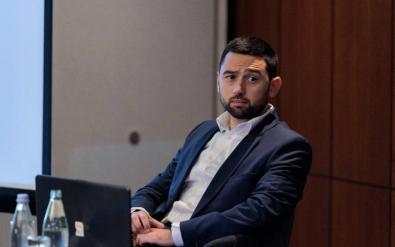Derivative lawsuit and its regulation in Georgian legislation

09.08.2021
Author: Nana Turmanidze
A fundamental problem of corporate governance is to protect shareholders from the problems of the company that arise due to separation from ownership control. The legal protection of shareholders' rights is recognized worldwide as an essential element of corporate governance. These legal rights provide shareholders with a variety of internal corporate governance mechanisms, such a participation on board, management self-regulation, etc. In addition to internal corporate mechanisms, the law also provides shareholders (partners) to bring lawsuits against managers when they see that managers have inappropriately used their control positions.
In corporate law, shareholder dirivative lawsuits are a special class of shareholder lawsuits that minority shareholders to sue a corporation insider on behalf of a company whose actions are likely to have harmed the company. A derivative lawsuit is a mechanism of corporate law to resolve corporation’s problems, while corporate insiders who have to sue are sometimes in a conflict of interest. The objective of the lawsuit is to ensure that the corporation's problems are rectified. Thus, these types of lawsuits are better than class action suits to study the role of courts in effecting corporate governance. In case of a direct action suits, any recovery is paid to the shareholders directly. The result obtained in the case of a derivative lawsuit is referred to the corporation.
Usually derivative lawsuits are the legal basis for the personal liability of directors and officers for breach of their fiduciary duties. It is simple to understand that directors and officers do not sue on behalf of the corporation against themselves. Consequently, a derivative lawsuit provides shareholders the opportunity to defend their interests through action that the company does not want to initiate. In the meantime, the claimant shareholders act in the best interests of all shareholders, thus using a legal mechanism that deals with the company's problems between shareholders and management, effectively putting corporate governance matters at the forefront.
Derivative lawsuits were the earliest forms of restriction due to the director’s improper management. The U.S. Supreme Court back in 1949 in the case of Cohen v. The Beneficial Industrial Loan Corp ruled that derivative lawsuit "has long been the main regulator of corporate management". As the views expressed in the legal literature state, derivative lawsuits can act as a deterrent, rather than a mechanism for shareholders to seek compensation for management wrongdoing. In this respect, the lawsuit leads to a correction of management behavior, as it realizes that shareholders' attention is now focused on its actions.
However, initiating a derivative lawsuit has its preconditions, which differ among the states. In this regard, it is interesting to consider Georgian regulation.
The regulation of derivative lawsuits first appeared in the Law on Entrepreneurs of Georgia on March 14, 2008, which was initially regulated only in relation to Joint-Stock Company (Article 53(5) of the Law on Entrepreneurs), and was regulated by a legislative amendment on October 31, 2014 regarding to a Limited liability Company (Article 46 (5) of the Law on Entrepreneurs).
"Sub-paragraph 5 of the Article 53 – Rights and obligations of shareholders
If a Joint-Stock Company has not filed its claim against any third party, a shareholder may instead, and to the benefit of the company, lodge a suit on his/her behalf for the fulfilment of that claim. Such shareholder shall be deemed a proper claimant, if the company does not file an action against the third party within 90 days after receiving a written request to that effect, or fails to prove that such an action prejudices the interests of the company."
Unlike the European countries, where derivative lawsuits are not so popular, Georgian legislation does not recognize the obligation to own a minimum share in the enterprise as a precondition for initiating a claim. In the absolute majority of the European jurisdictions, shareholders can initiate derivative lawsuits against management due to its breach of fiduciary duty. However, the initiation of a lawsuit is limited to owning a minimum amount of shares in the enterprise. Not all minority shareholders in a large number of European countries can bring an action against the management for breach of fiduciary duty. The right to initiate a derivative lawsuit is allocated to shareholders who have a stake of at least 5% (Czech Republic, Spain, Slovakia) or 10% (Austria, Bulgaria, Hungary, Slovenia, Sweden). Germany has recently reduced the 10% threshold to 1%, while Italy has reduced it from 5% to 2.5%.
Moreover, for the specificities of the derivative lawsuit, it is interesting to compare the regulation in the Law on Entrepreneurs of Georgia with the Model Business Corporation Act (MBCA), developed by the American Bar Association and setting the standards for corporate law. The Model Act is currently in force in 24 U.S. states, defining, among other, fundamental matters in corporate law, procedures for initiating a derivative lawsuit. In accordance with the Act:
- A derivative lawsuit is initiated by shareholder;
- To ensure that the demand reaches the appropriate person for review, it should be addressed to the board of directors, chief executive officer, or secretary at the corporation’s principal office.
- Detailed pleading is not required given that the corporation can contact the shareholder for clarification if there are any questions
- No shareholder may commence a derivative proceeding until (i) a written demand has been made upon the corporation to take suitable action and (ii) 90 days have expired from the date delivery of the demand was made unless the shareholder has earlier been notified that the demand has been rejected by the corporation or unless irreparable injury to the corporation would result by waiting for the expiration of the 90-day period.
The applicable Georgian Entrepreneurs Law, like the Model Business Corporation Act, provides for an initial written request to the company and a 90-day regime during which the company must file a lawsuit against a third party or prove that such an action prejudices the interests of the company. However
- It does not regulate in any way against whom a derivative lawsuit is filed, nor is it aware of any exceptional cases in which a shareholder can file a derivative lawsuit before the expiration of 90 days.
- Also, the Georgian legislation does not specify to whom the request for initiating a derivative lawsuit should be addressed in the enterprise.
In this regard, it is noteworthy that the new Law on Entrepreneurs of Georgia, which will enter into force on January 1, 2022, and, in contrast to the Law on Entrepreneurs, which will lose its force when the new law enters into force, will regulate the derivative lawsuit in a more detailed manner, and it will approximate to the regulation of the Model Business Corporation Act. Under the new law, the derivative lawsuit mechanism is regulated as follows:
"Article 223. The shareholder's claim based on the request of the Joint-Stock Company
- A shareholder or shareholders have the right to sue in their own name and in favor of a PLC for a claim belonging to a PLC, including against officials of a Joint-Stock Company. By claiming compensation for the damage caused to the PLC in case of breach of duty or transfer of the benefit received to the PLC instead of the damage or concession of the right to receive such benefit.
- A shareholder is considered an appropriate claimant if:
A) 90 days have expired from the written application of the shareholder to the Joint-Stock Company with a request to initiate a lawsuit, except in cases when the joint stock company refuses to file a lawsuit before the expiration of this period and compliance with this period may cause irreparable damage to the Joint-Stock Company;
B) the implementation of the request does not contradict the superior interest of the Joint-Stock Company;
The significance of the legislative amendments in relation to the dirivative lawsuit can be divided into several parts:
- The new law, like the Model Business Corporation Act, provides for the exceptional case where a shareholder can sue for a derivative lawsuit without waiting a 90-day completion - this is the moment when the expiration of 90-day could cause irreparable damage to the Joint-Stock Company (or LLC);
- On the other hand, new law, like the Model Business Corporation Act, clarify that a derivative lawsuit shall be filed, including against enterprise
- Also, according to the new law - the filing of a claim for a derivative lawsuit by a proper claimant should not contravene the best interests of the enterprise, which means, for instance, a case in which an enterprise may cause much harm and therefore the enterprise is not interested in lodging a claim. For example, if an enterprise shares are admitted to the securities market, the entity may have no interest in initiating a derivative lawsuit because the securities market is vulnerable and the derivative lawsuit may be reflected in fluctuations in the share price.
It is obvious that the new Law on Entrepreneurs of Georgia will eliminate the gaps that are characteristic of the applicable Law on Entrepreneurs and will have a positive impact on Georgian court practice. Meanwhile, it will approximate to regulating the derivative proceedings with the Model Business Corporation Act.
Keywords: Law on Entrepreneurs of Georgia, Draft Law on Entrepreneurs of Georgia, Model Business Corporation Act, Derivative Lawsuit
Sources:
- Ferris, Stephen P. and Lawless, Robert M. and Makhija, Anil K., Derivative Lawsuits as a Corporate Governance Mechanism: Empirical Evidence on Board Changes Surrounding Filings (September 2001).
- THE PUBLIC AND PRIVATE FACES OF DERIVATIVE LAWSUITS, ROBERT B. THOMPSON & RANDALL S. THOMAS A revised version of this paper is forthcoming Vanderbilt Law Review (2004);
- Kocaoglu, Kagan (March 2008). "A Comparative Bibliography: Regulatory Competition on Corporate Law". (Georgetown University Law Center Working Paper).
- No Derivative Shareholder Suits in Europe - A Model of Percentage Limits and Collusion Kristoffel R. Grechenigand Michael Sekyra
- საქართველოს მეწარმეთა შესახებ კანონი;
https://matsne.gov.ge/ka/document/view/28408?publication=69 [25/06/2021] - საქართველოს მეწარმეთა შესახებ კანონის პროექტი;
https://matsne.gov.ge/ka/document/view/4962987?publication=0 [25/06/2021] - Model Business Corporation Act (Revision 2016)






